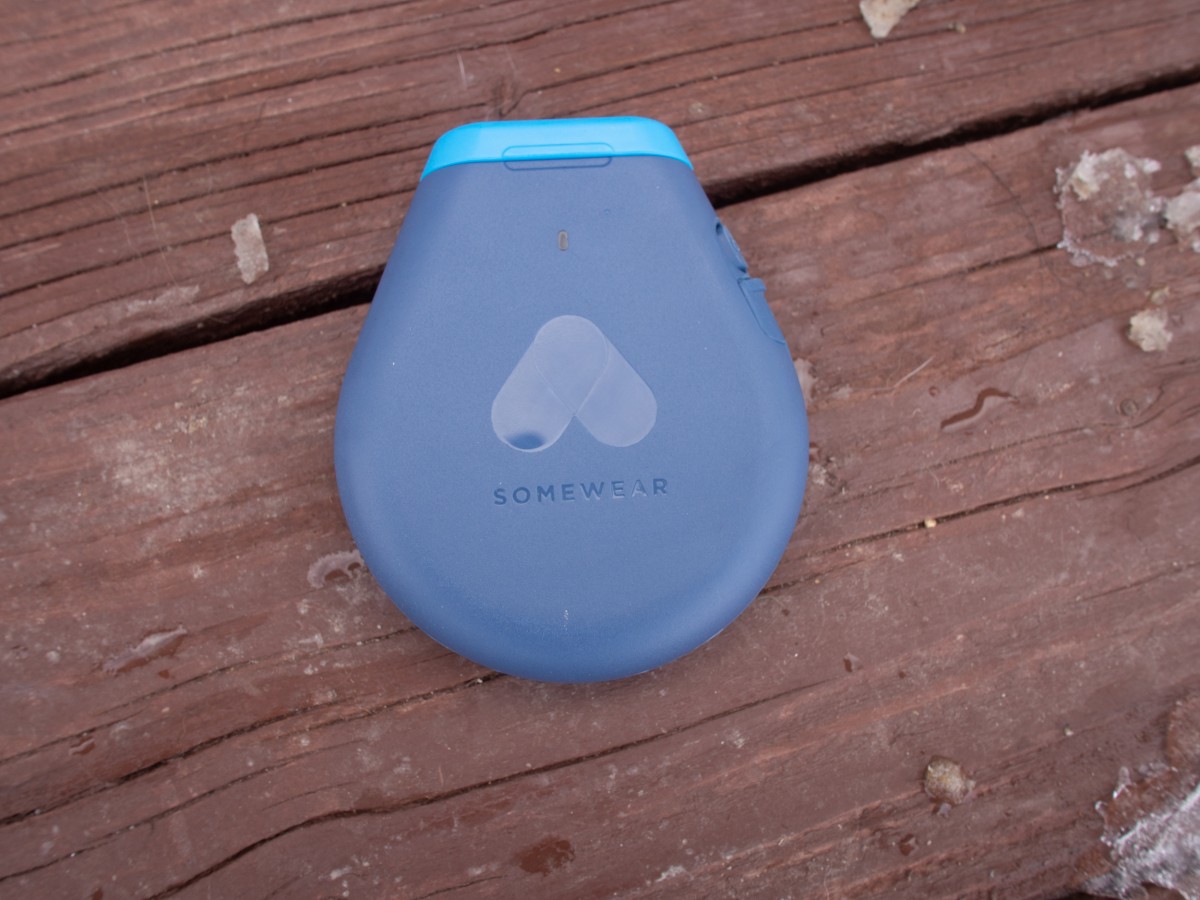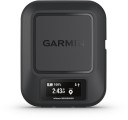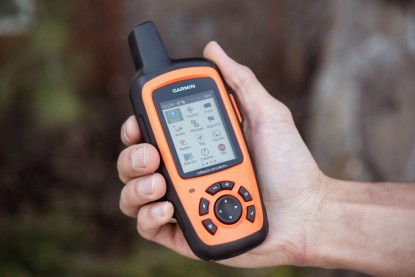Our Verdict
Compare to Similar Products
 This Product
Somewear Global Hotspot | |||||
|---|---|---|---|---|---|
| Awards | |||||
| Price | $280 List | Check Price at Backcountry Compare at 3 sellers | $199.95 at REI Compare at 2 sellers | Check Price at Backcountry Compare at 3 sellers | $359.95 at REI Compare at 2 sellers |
Overall Score  |
|||||
| Star Rating | |||||
| Bottom Line | A small, basic device that employs established network, dispatch, and hardware systems through affordable subscription plans | There are devices that have more features but those features are unnecessary and come at the cost of more useful function | A compact, full service satellite messenger that has all you need, and is close to all you would want | This is a smooth, comprehensive two-way communicator that relies on a proven satellite network and brings innovations that raise the bar | A small, satellite-linked emergency communicator that is exactly what you need and nothing more |
| Rating Categories | Somewear Global Hot... | Garmin inReach Mess... | ACR Bivy Stick | ZOLEO Satellite Com... | Ocean Signal rescue... |
| SOS/Emergency Messaging (30%) | |||||
| Non-Emergency Messaging (25%) | |||||
| Signal Coverage (20%) | |||||
| Ease of Use (15%) | |||||
| Portability (10%) | |||||
| Specs | Somewear Global Hot... | Garmin inReach Mess... | ACR Bivy Stick | ZOLEO Satellite Com... | Ocean Signal rescue... |
| 2-way Messaging? | Yes | Yes | Yes | Yes | No |
| 2-way Messaging Available via Cellular/Wifi? | Yes | Yes | No | Yes | No |
| Custom Messaging Viewable and Composable on Device? | No | Yes | No | No | No |
| Passive Tracking (turn on and forget about it - viewers at home can watch your progress on the web) | Yes | Yes | Yes | No | No |
| Weight w/ Batteries | 4.1 oz | 4.0 oz | 3.6 oz | 5.3 oz | 4.0 oz |
| Battery Life | Up to 1000 messages | Up to 28 days with a message or location sent every 10 minutes with full sky view | Up to 120 hours | 200+ hours when checking messages every 12 minutes | 24 hours |
| Waterproof Rating | IPX7 (No dust rating. Rain, splashing, and accidental submersion up to 30 minutes) | IPX7 (No dust rating. Rain, splashing, and accidental submersion up to 30 minutes) | IP67 (protection from harmful dust. Rain, splashing, and accidental submersion up to 30 minutes) | IP68 (protection from harmful dust. Rain, splashing, and accidental submersion at least 30 minutes) | No Formal Rating. Likely exceeds rating system. Claimed "Up to 15 meters" |
| Pairs with Smartphone? | Yes | Yes | Yes | Yes | No |
| Requires recipient to use a special app for two-way communications? | Yes | No | Yes | Yes | N/A |
| On Device Functions (if you lose or disable your smartphone) | SOS. All texting requires smartphone app | All, but very slow to text | SOS, check-in, tracking. All texting requires smartphone. | SOS, check-in. All texting requires smartphone | All. |
| Satellite Network | Iridium | Iridium | Iridium | Iridium | COSPAS/SARSAT |
| Dispatch service | GEOS | Garmin Response Team | Global Rescue | GEOS | COSPAS/SARSAT |
| Dimensions | 3" x 3.6" x .8" | 3.1" x 2.5" x 0.9" | 1.9" x .9" x 4.5" | 3.5" x 2.6" x 1.0" | 3.0" x 2.0" x 1.3" |
| Volume | 8.6 CU IN | 6.9 CU IN | 7.7 CU IN | 9.1 CU IN | 6.8 CU IN |
Our Analysis and Test Results
The Global Hotspot from Somewear was released a couple of years ago in the first of several spurts of innovation in this sector. We liked it at first, and we continue to test it for longevity. We are happy to report that it truly complements the options on the market. We've had some hardware issues, but their customer service has been responsive and effective. Most notably, this brings two-way wilderness messaging to a new level of affordability. Because it's hard to compare subscription plans, the savings aren't immediately obvious. When you ponder how these devices will be used, the Hotspot is at least a little less expensive than any other two-way texting device. That said, some usage patterns are slightly more affordable with a different product. The best resource to compare subscription plans is the chart we include in our comprehensive satellite messenger review.
Performance Comparison
SOS/Emergency Messaging
Somewear configures the Global Hotspot for SOS functionality with an on-device button, the Iridium network, GPS location data, and a third-party monitoring and dispatch service. In our testing, thankfully, we did not activate the SOS service of the Hotspot or any of the tested devices. All of our reviews of these attributes are based on a thorough understanding of how they work and on extrapolation from the non-emergency messaging attributes, with no “real-world” usage of the actual emergency functionality. We also consulted with SAR teams across the USA. In short, we can confidently recommend the SOS functionality of the Global Hotspot. No SOS function is fool-proof, but the Somewear Global Hotspot is as good as anything available in the private sector.
The governmental, global “COSPAS/SARSAT” network of satellites and associated dispatch service is the best option. Of the systems available, this one has the most robust set of data supporting its functionality. There are three other networks available and in common use. These are geostationary distant satellites, Iridium, and Globalstar. At this point in time, all services that employ one of the non-COSPAS/SARSAT communication networks route SOS messages through GEOS incorporated's global dispatch and monitoring service. GEOS is one of a few for-profit entities that provides emergency dispatch services in a variety of contexts. Their track record is long, and their performance is sound. The Somewear Hotspot uses the GEOS emergency service. Given the long history and familiarity of GEOS it is the private sector dispatch service that we trust the most.
Non-Emergency Messaging
The Global Hotspot allows two-way texting from remote areas via an app on your phone. Messages can be sent either to email addresses or to phone numbers as standard text messages. If the message recipient is registered with Somewear, even if that recipient is not using a Somewear device, messages go to and from their Somewear App or web interface. The Global Hotspot also has a rudimentary tracking service. It can be configured to send out your location automatically on a set interval.
There is no option for preprogrammed outbound messages. Nor is there any way to send a non-emergency custom message without your app-enabled phone. The only functions available on the device itself are an SOS button and the ability to initiate Somewear's “tracking” feature. The tracking feature is the one that sends your location on some predetermined interval (an interval that you can set). This latter attribute is new in the newest version of the Global Hotspot. We like this. Picture a scenario in which you lose your smartphone or its battery is dead. In that scenario, with the Hotspot, you could always press the SOS button if need be. Now, should you lose your phone function, you can have the Hotspot send tracking data. Make sure your loved ones watching from home understand the nuances of wilderness satellite communication (that “no news is good news” in the vast majority of situations) and trust that this particular product gives you more backup communication options than its predecessor did.
Interestingly and somewhat uniquely, you can also send and receive Somewear messages through cellular data or WiFi. When your travels take you in and out of civilization, it is nice to keep a conversation thread intact across connectivity types. We like this, and we like that we are seeing this attribute in more and more products and services. Somewear Labs was one of the first to include this seamless messaging functionality. It may seem inconsequential or minor, but our testers have unanimously liked this feature once they realize how it cleans up communications.
The non-emergency messaging attributes of the Global Hotspot are not the most sophisticated, but they are better than nothing. By providing two-way, non-emergency messaging, the Global Hotspot exceeds the abilities of many others. With the Hotspot, you send and receive messages via a smartphone app. Others can send and receive messages only through the device itself. Some allow both. We prefer having both methods on one device, but the budget price of the Global Hotspot has us overlooking this limitation as we grant our awards.
Signal Coverage
The Global Hotspot uses the Iridium low earth orbit satellite network. This network is the best option available for two-way communication and worldwide coverage. That said, all satellite communications are vulnerable to temporary outages and issues with overhead obstructions, the Global Hotspot included.
In comparing devices, brands, services, and networks — once we corrected for the inherent issues of satellite communication — we've found little to no difference in signal coverage. In most places and circumstances, the difference between your familiar cellular coverage and utility and satellite comms is far, far greater than any difference between different satellite networks or devices. Satellite communication is inherently slow and challenging compared to WiFi or cellular texting.
Ease of Use
The Global Hotspot is very easy to use. Essentially all of its functions are accessible via an intuitive and simple mobile phone app interface. This simplicity is valuable but limiting. In certain situations, we wanted the option to send and view custom messages from the device itself. Otherwise, we find the Hotspot quite easy to use.
Pairing the device with your smartphone is a little moody. After initial setup, provided you perform the order of operations correctly, it works just fine. However, that order of operations is rather specific; turn on the device first and then open the app on your phone. If the connection is lost (if you walk your phone away from the pack where your Hotspot is stored, for instance), you must turn the device back off, quit the app on your phone, and resume the connection from the beginning. Other Bluetooth devices don't seem to require this same rigorous adherence to order of operations.
Other reviewers have pointed out that the Hotspot has shorter battery life than close competitors. We, too, noticed an appreciable difference. In our testing, we had no real issues with battery life; the other options are exceptionally good on battery life. On short trips, our testers have good electronics use habits — i.e., we turn off our devices when not in use. On longer trips (more than 2-3 days or so), we carry more battery power or solar charging options. The modern wilderness traveler needs good electronic and battery use habits and skills, regardless of which devices you carry. All that said, the Somewear does indeed have shorter battery life than its close competitors. You'll need to recharge it more frequently. If our anecdotal experience is any indication, that means the difference between recharging after a weekend of use instead of a few weekends of use or the difference between 2-3 recharges on an expedition vs. 1-2 field recharges.
No two-way messaging device we tested is simpler than this one. Of course, for emergency-only communications, the COSPAS/SARSAT options are way easier to use. These have just one button for SOS summons. Without phone app complications and various options, simpler devices will be simpler to use.
In testing the second generation of the Hotspot, we encountered some trouble. The device arrived charged and ready and worked just fine at first. When it came time to recharge it, it wouldn't recharge. We contacted customer service, and they had us perform a few unsuccessful troubleshooting moves before sending it back. They said the problem was rare and executed a repair. That repaired device was returned in a couple of weeks and then wouldn't stay turned on. Somewear Labs then sent us a whole new Global Hotspot. The latest one has worked as advertised in terms of reliably staying on and taking a charge.
You have to set up your Somewear Global Hotspot while in cellular or WiFi signal. If Bluetooth connectivity between the device and app is lost while you are in the field, you can likely still reconnect them. Other products in our test that use Bluetooth-enabled apps do not reconnect without a signal. This is a minor, low-likelihood situation that came up for other products later in testing.
Portability
Portability is simply a function of size and weight. The Global Hotspot is on the small and light end for a two-way messenger. It weighs 4.1 ounces and is 3.6 inches long.
Some devices in our review are slightly lighter and smaller than the Global Hotspot. Others are considerably larger and heavier. The Hotspot is a size and mass that can easily go anywhere with you. The difference between it and the smaller competitors isn't as dramatic as you might fear. Anywhere and anytime you can carry any satellite messenger, you can carry this one.
Should You Buy the Somewear Global Hotspot?
This is a viable and affordable option. At our last look (January 2023), the Hotspot was waitlisted on the Somewear Labs website. You might be able to find a used one in the meantime, but others are just as good or better.
What Other Personal Locator Beacons Should You Consider?
All the other two-way satellite messengers in our lineup are great. The Garmin inReach Messenger and Garmin inReach Mini 2 are the best around right now. The ACR Bivy Stick and Zoleo Satellite Communicator are also great options.















